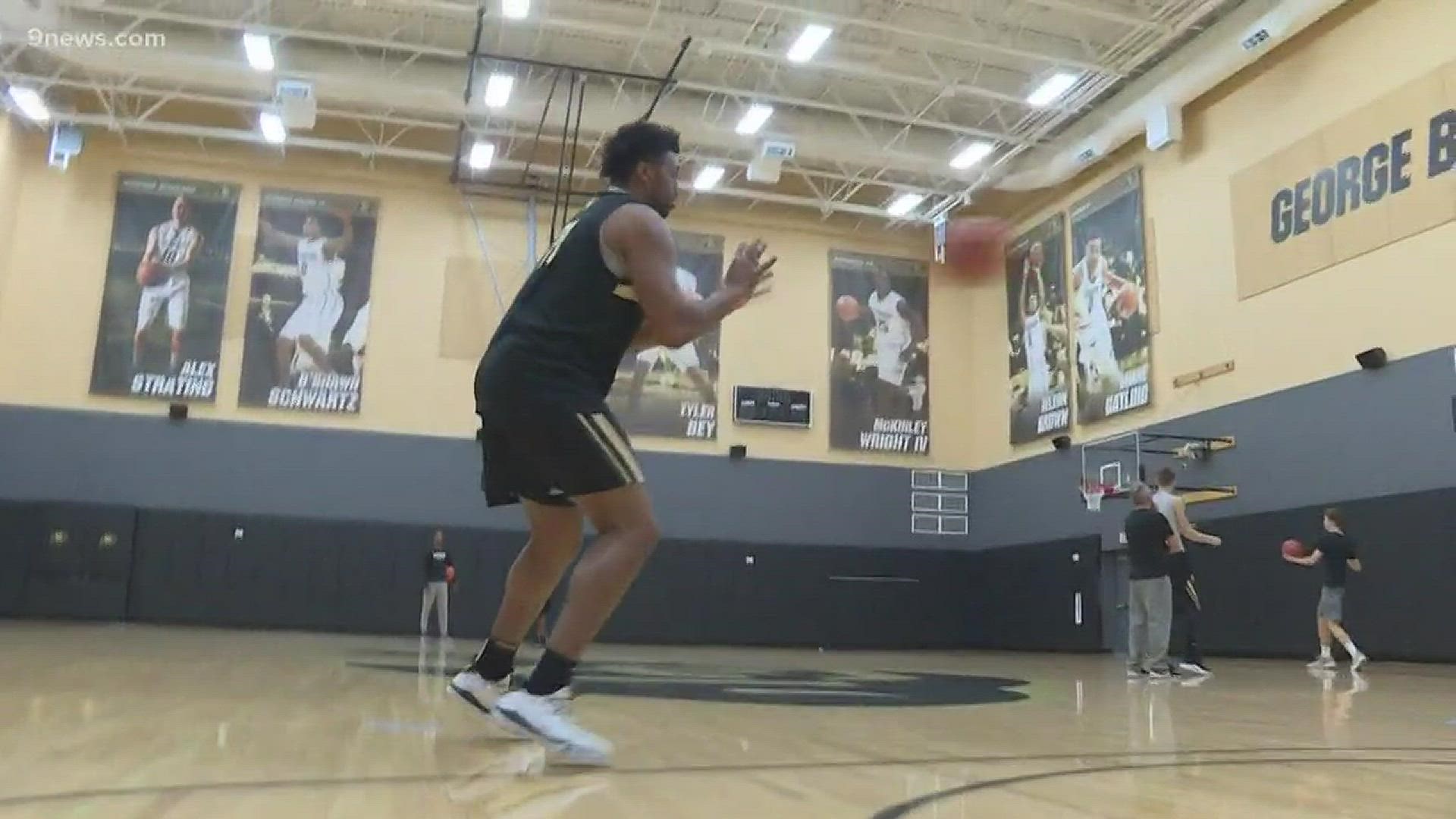It’s often said that life can change in an instant. And on December 26, 2017, everything changed for Evan Battey.
“It’s unbelievable. I mean, he’s come so far,” said University of Colorado head coach Tad Boyle. “The setback that he was given on December 26th, it was mind boggling to think about as a coach or as a parent.”
The day after Christmas, Battey, a redshirt freshman forward for the Buffs, was playing pick-up basketball with his friends back in his home state of California when the right side of his body went numb from head to toe.
The 6-foot-8 forward tried to text his mom but was unable to, so his friends called her instead. Only minutes away, his mom took him to an LA-based hospital. At the age of 19, Evan was having a stroke.
The medical staff at Kaiser Permanente Los Angeles gave him tPA, a medication that breaks up blood clots. On the way to a facility specializing in strokes, Evan had a seizure. Upon arriving at the new hospital, he had a second.
Five days and four nights later, there were no answers as to why the seemingly healthy teenager had experienced a stroke.
“We have a bunch of maybes, but the truth is, and the fact of the matter is, I was in the best shape of my life,” Evan recalled. “I was at 255, 260, you know strong, lean, can run for days. There was no reason for me to have a stroke at my age, so we don’t know.”
Simple tasks like eating and getting dressed suddenly became difficult, but nothing was more challenging than relearning how to talk.
“I can handle the physical therapy, I can handle waiting to get my right side back on my brain, but just talking because people know that I was such a good talker before, they’re just expecting me to be that same person I was before," Evan added. "And I was like, I can’t really be that person right now. So that was the most frustrating part.”
Boyle recalls Evan’s early struggles, which included lots of physical therapy as well as speech therapy.
“It’s ironic that he had a stroke and it affected his speech because Evan is one of the best talkers that we have in the locker room,” Boyle said. “And so to have an outgoing kid with his speech affected, it slowed him down for a little bit. But it hasn’t changed who he is.”
Early conversations between the coach and the player revolved around getting better and that his scholarship would always be there for him.
“Obviously as a coach you want him to play but as a parent you want him healthy,” Boyle continued. “It was a while before he could look me in the eye and say, “Coach I’m ready to play.” And I think it took him a while to get to that point. But once he did, we were obviously going to support him regardless what decision he made. Whether he decided to play or decided not to play.”
“It was a little hard for me at first because I didn’t want to step out there on the court again if I can have that same thing happen,” said Evan. “But there came a point where I had to swallow that fear though, and just not let that hold back my life.”
Evan’s return to the court came in the summer and, later, in an exhibition against Colorado School of Mines. However, Evan points to CU's season-opener against Drake as his first real competitive game of collegiate basketball.
“After the game we shook hands and all that, we shook the fans hands and I remember running over, straight to my mom, and just crying, just crying for 5 minutes,” Evan recalled, a smile stretched across his face. “People were wanting to take pictures with me and I was like, wiping tears from my eyes, and I was like, 'okay we can take pictures,' but it was a special moment for sure.”
11 months after a stroke and two seizures, Evan scored eight points in the Buffs blowout win.
“Is he 100%? Yeah, he’s 100%. But is he as good as he’s going to be? No, he’s got a lot of room for improvement just like every freshman does,” adds Boyle. “But it’s just good to have him on the floor and have him a part of the program and I just love the kid.”

